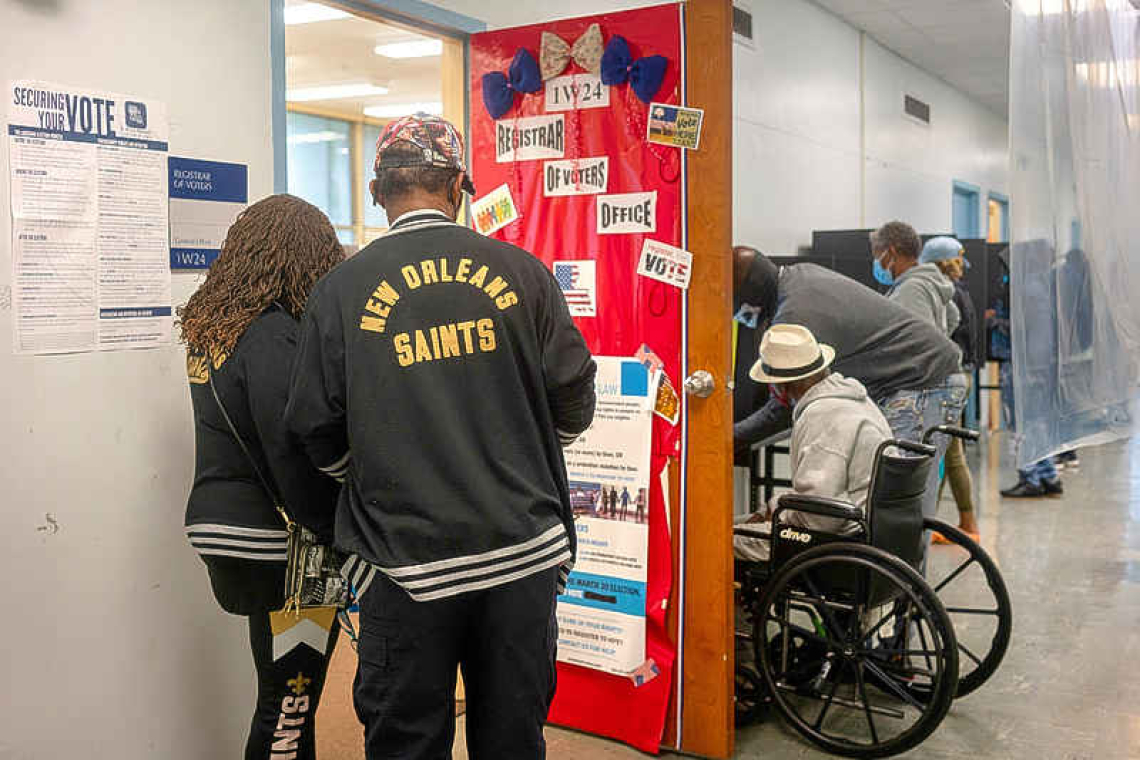WASHINGTON--The U.S. Supreme Court is set on Wednesday to hear a Republican-led challenge to the Voting Rights Act, giving its conservative majority a chance to deal another blow to the landmark federal law enacted 60 years ago to prevent racial discrimination in voting.
The case involves electoral districts in Louisiana. The arguments come in an appeal by a group of Black voters of a judicial decision declaring that a map that raised the number of Black-majority congressional districts in the state from one to two violated the constitutional promise of equal protection because it was guided too much by racial considerations.
Louisiana, where Black people make up roughly a third of the population, has six U.S. House of Representatives districts. Black voters tend to support Democratic candidates.
Section 2 of the Voting Rights Act bars electoral maps that would result in diluting the clout of minority voters, even absent direct proof of racist intent. This provision gained greater significance as a bulwark against racial discrimination in voting after the Supreme Court, in a 2013 ruling authored by conservative Chief Justice John Roberts, gutted a different section of the Voting Rights Act.
If the court similarly hollows out Section 2, according to Harvard Law School Professor Nicholas Stephanopoulos, "the consequences could be very dramatic."
"States with unified Republican governments would likely try to eliminate most or all of their minority-opportunity districts, since doing so would no longer violate Section 2," said Stephanopoulos, who filed a brief defending the Voting Rights Act.Opportunity districts are electoral districts where racial minorities have a reasonable chance to elect their preferred candidate.
The Supreme Court, which has a 6-3 conservative majority, is expected to rule by the end of June. A decision striking down Section 2 could help Republicans gain as many as 19 additional seats in the U.S. House and reduce minority membership in Congress, according to a report by Democratic-affiliated advocacy groups Fair Fight Action and Black Voters Matter Fund. Republicans currently hold a slim majority in the House.
In a process called redistricting, the boundaries of legislative districts across the United States are reconfigured every decade to reflect population changes as measured by the national census. Redistricting typically is carried out by state legislatures.
After Louisiana's Republican-controlled legislature adopted a map that included just one Black-majority district following the 2020 census, a group of Black Louisiana voters sued. U.S. District Judge Shelly Dick in 2022 ruled in favor of the plaintiffs, deciding that the map likely harmed Black voters in violation of Section 2.
In response, the state legislature created a second Black-majority district in a redrawn map that it approved in January 2024. But this map prompted a new lawsuit by 12 Louisiana voters who described themselves in court papers as "non-African American." They argued that the second Black-majority district unlawfully reduced the influence of non-Black voters like them. White people make up a majority of Louisiana's population.
A three-judge panel ruled 2-1 in April 2024 that the map relied too heavily on race in violation of the equal protection principle, prompting the appeal to the Supreme Court. The Supreme Court will hear arguments for the second time this year in the case. It also did so in March but then in June sidestepped a decision and ordered another round of arguments.







